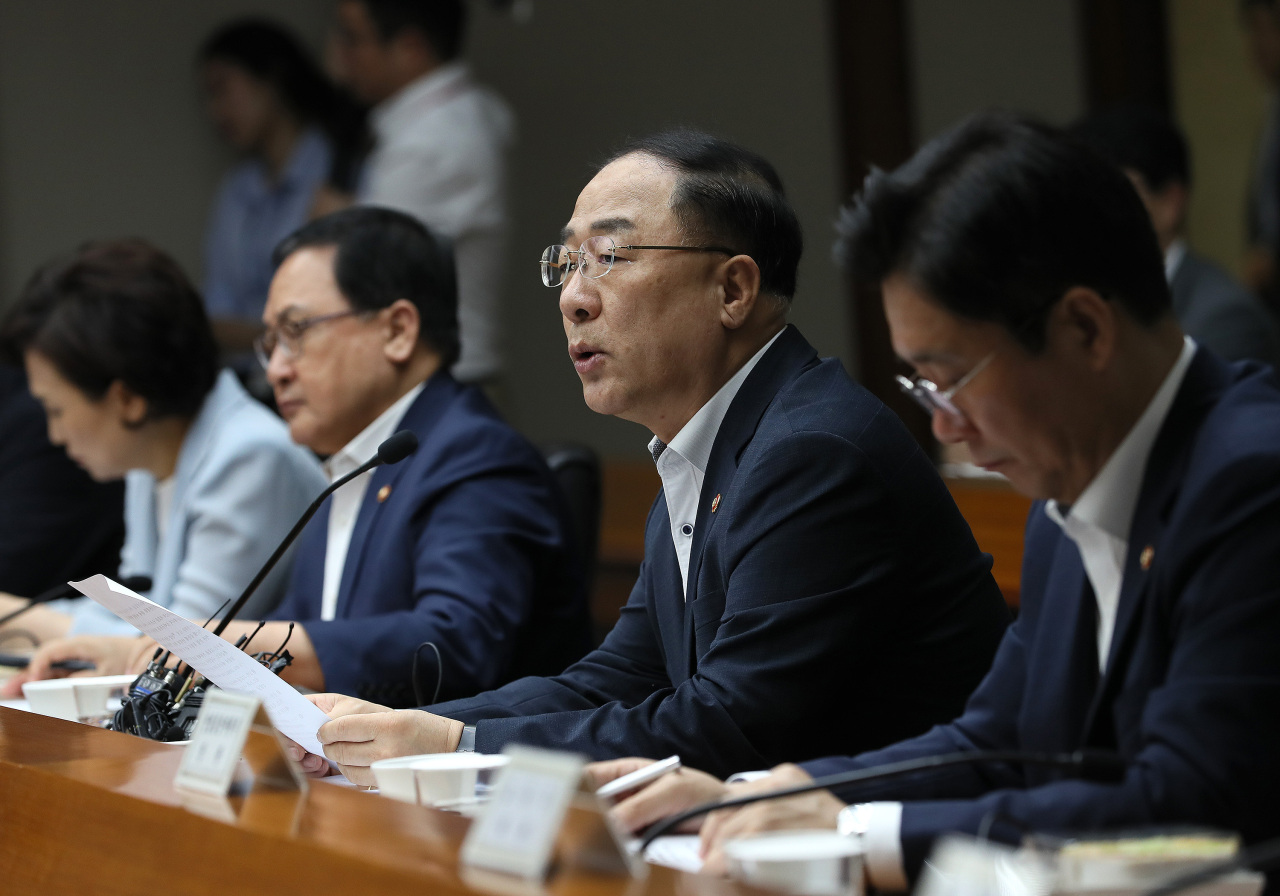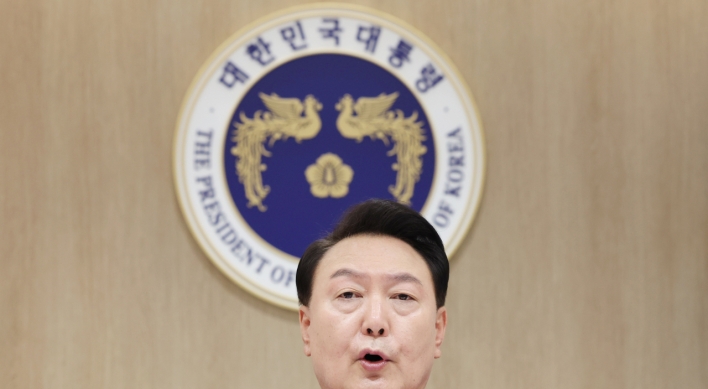Korea to inject W4.7tr next year into non-memory chips, AI, mobility
By Cho Chung-unPublished : Aug. 21, 2019 - 15:34
The government will spend 4.7 trillion won ($3.89 billion) next year to support the development of future industries as part of its effort to revitalize the nation’s sluggish economy, the finance minister said Wednesday.
At a ministerial meeting in Seoul, Deputy Prime Minister and Finance Minister Hong Nam-ki said the government would invest 3 trillion won in system semiconductors, bio-health and future mobility.
The remaining 1.7 trillion won is to be set aside for data, fifth-generation network services and artificial intelligence, he said, stressing that the investment is meant to promote the growth of innovative industries.
At a ministerial meeting in Seoul, Deputy Prime Minister and Finance Minister Hong Nam-ki said the government would invest 3 trillion won in system semiconductors, bio-health and future mobility.
The remaining 1.7 trillion won is to be set aside for data, fifth-generation network services and artificial intelligence, he said, stressing that the investment is meant to promote the growth of innovative industries.

“The planned investment in core infrastructure and new industries is planned to help innovative growth spill over into other industrial sectors,” said Hong, who also serves as deputy prime minister for economic affairs.
The two-phase plan starts with expanding infrastructure for data, the 5G network and AI. To build a foundation for innovative growth, the government will provide vouchers for small and medium-sized companies wanting to purchase AI solutions and run projects such as building digital twins of aging facilities to nurture growth in the 5G network market.
Digital twins are virtual representations of physical devices or assets that create simulations of the actual objects before being built.
The plan also includes launching an AI research and development complex in Gwangju and developing next-generation robotic technology based on AI and the cloud system.
For development of non-memory chips, the government plans to invest 230 billion won to produce advanced test equipment and to establish support centers for system chip architecture. The government also plans to inject 1.28 trillion won to support joint research projects of bio drugs and medical devices and to pick five new hospitals to test the use of medical data in health institutions. The plan, however, excluded offering tax benefits to R&D projects of biosimilar drugs and price adjustments of biosimilar drugs.
To speed up the development of future mobility, the government will inject a combined 1.49 trillion won into nurturing the power-charging service industry, battery R&D projects for high-performance electric vehicles and advancing K-City, a test bed for autonomous vehicles.
The 4.7 trillion-won plan came a month after President Moon Jae-in pledged to strengthen the government’s drive for innovative growth in the manufacturing sector and support talented startups in response to Japan’s export restrictions to Korea.
South Korea has been engaging in a “trade war” with Japan since last month after the neighboring country abruptly imposed tougher regulations on exports of three key materials crucial for chip fabrication and display panel manufacturing in apparent retaliation against a Seoul court’s ruling that ordered Japanese companies to compensate wartime forced labor.
Asia’s fourth-largest economy has been facing slowing exports and investment. Amid the trade row with Japan, outbound shipments declined 13.3 percent to $24.9 billion in the third week of August from the same period last year, mainly due to falling exports of semiconductors and IT devices particularly to China, according to the customs service. Shipments have fallen 20 percent to China and 13.1 percent to Japan.
By Cho Chung-un (christory@heraldcorp.com)












![[KH Explains] How should Korea adjust its trade defenses against Chinese EVs?](http://res.heraldm.com/phpwas/restmb_idxmake.php?idx=644&simg=/content/image/2024/04/15/20240415050562_0.jpg&u=20240415144419)







